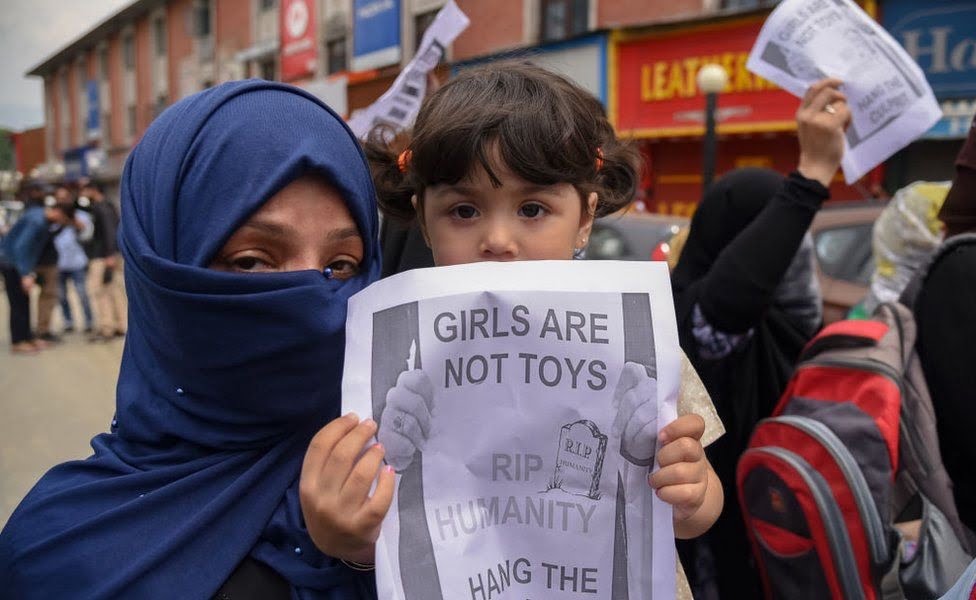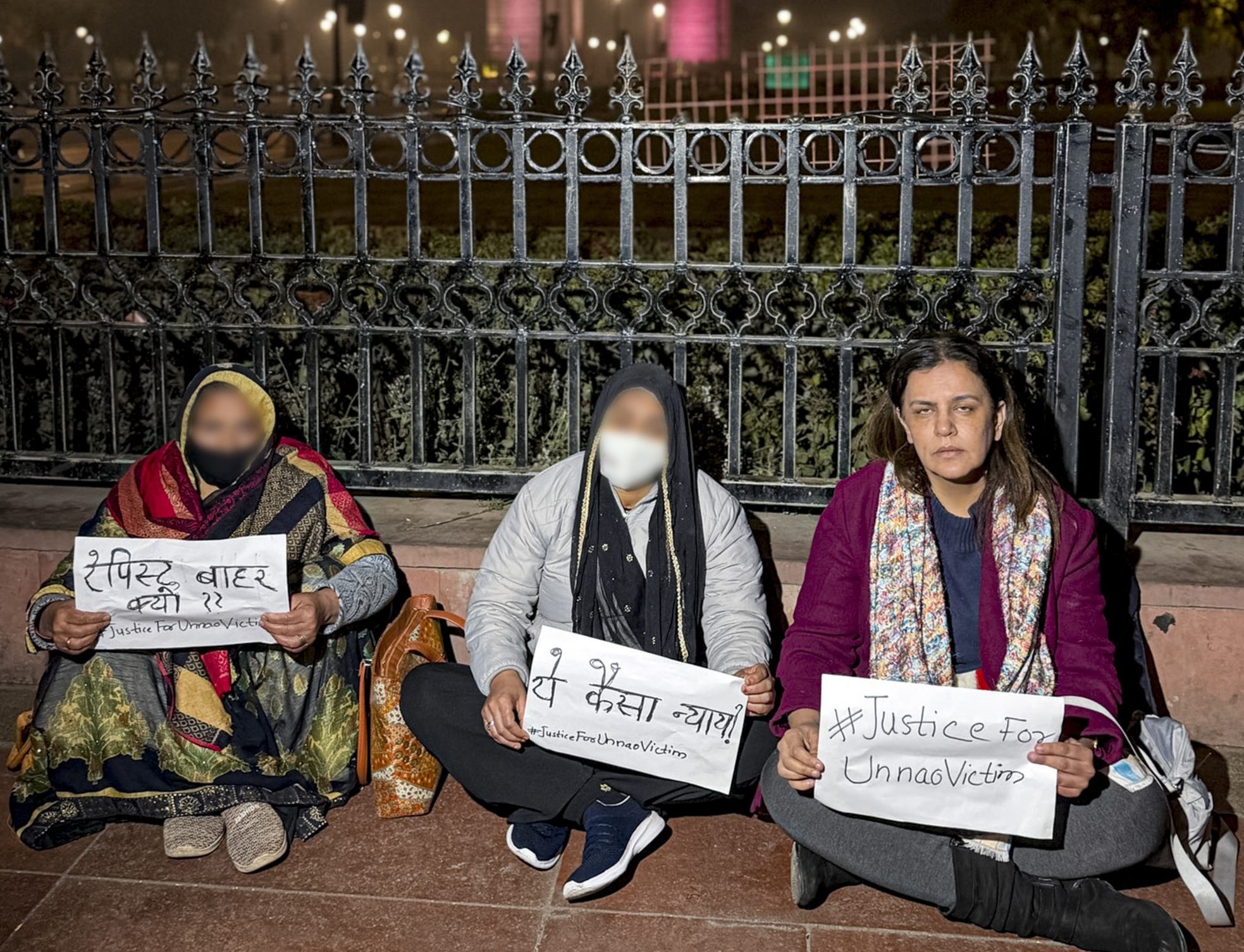Right from schools to universities, women students have faced what’s called the pursuit of romeos, every day – morning, noon, or evening. Women can’t go out on dates with their girlfriends for fear of men, loitering around market hubs, ready to make moves or pass snide remarks. And the same men talk about women empowerment on their social media handles. An irony indeed!
We can’t even begin to explain what freedom means in Kashmir. Although it does have a range of meanings, to women, this word has an entirely different explanation. You might be covered in hijab or wear jeans, it just doesn’t matter to the men. They follow you anyway, harassing every which way possible.
A number of researches have been done in Kashmir on ‘eve-teasing’ (The politically correct terminology for ‘eve-teasing’ is ‘street harassment’. The former trivialises the gender-based form of violence) as a ridiculous form of enjoyment for men whilst being physically and mentally distressing for women. One such research, with specific reference to district Srinagar, was published in 2013 in the International Journal of Sociology and Anthropology by C. Akhtar. The research deduced a correlation between ‘eve-teasing’ and the profile of its perpetrators. In addition, certain psychological factors were found connected to this type of violence. What it also inferred is that responses of women to ‘eve-teasing’ were more of endurance than of resistance for the fear of double victimisation.
No, Just Doesn’t Mean No, Anymore
Some of the high school students studying in reputed schools, who wished to remain anonymous, spoke about the level of eve-teasing they experience. It makes one’s skin crawl.
Parents are usually unaware of every little or large abuse their daughters might be facing. Just because discussing these issues is a taboo in Kashmiri families (read most Kashmiri families), the whole situation, if it arises, is pushed under the rug
“Everyday after school, some college boys follow us to our coaching centers, wait till our classes are over, then follow us home. Due to such incidents, we prefer taking a different route to our houses. We don’t want our neighbours to know because at the end of the day, we know, we would be blamed.”
Another one explained,
“Although we’ve spoken to our teachers and guardians at school, the boys always get away. They do promise not to pursue us in front of them, however, there’s always online molestation to get them through. It makes school difficult.”
The Idea of Social Butterflies
What exacerbates the situation is when certain sections of our society, especially the young student community, try to normalise this stalker-like pursuit of women. The most susceptible is the most unaware. Most girls don’t even realise the dangers of such forms of harassment, practised either on social media or in public. And because they have not been warned before by teachers or parents, young women tend to fall for this trap, only keeping into consideration the superficial concept of popularity gained – their photos have more likes than others, they have a huge number of followers on social media, or that they are trendsetters at school.
Two decades ago, children in Kashmir were oblivious to the internet boom or social media. Their only playground was offline—toys were shields, and abuse had not been as frequent or vicious. With access to free internet, play-stations, and a variety of applications, children today are prone to violence and abrupt change in behaviour. What’s even more worrisome is that their psyche is accepting all of this as ‘normal’ adolescent change, which it definitely isn’t.
Has the World Changed for the Worse?
Young girls are introduced to the world of unrealistic beauty standards, making them question their physical appearance. Consequently, they fall prey to body shaming and may develop eating disorders. What takes a huge hit is their self-esteem, making them vulnerable to sweet-talkers and roadside perverts.
Young boys face violence and antagonistic scenarios in games from an early age where women are often portrayed as insignificant and constantly vilified. This modifies the approach of men towards women. They are favoured, or their unruly behaviour is tolerated at home. This further strengthens their distorted idea of being superior to women. Attitudes of their fathers and other male elders towards the women of the family also form a very important aspect in determining how these young boys view women growing up. Although both genders are bare to the trap, obscenity is encouraged and advocated mainly towards girls.
Online Molestation
Almost all junior high and senior high school kids in Kashmir own a phone. It may come as a surprise to many that online molestation in the Valley has crossed boundaries ages ago. Recent reports incessantly declare that schoolgirls, with an active social media account, have been reported to receive obscene and vulgar texts or photographs by contenders of online abuse. Without any provocation, girls are subjected to indecency beyond comprehension.
It is notable to mention that most victims are below 18 years of age while the offenders usually range 30 and above. It is disheartening that many older men, find social media profiles of young girls palatable enough to dedicate their time and energy instead of finding a suitable partner of a proper age. Many such men even go to the extent of following these young females home or to their place of study, further worsening the situation.
Parents are usually unaware of every little or large abuse their daughters might be facing. Just because discussing these issues is a taboo in Kashmiri families (read most Kashmiri families), the whole situation, if it arises, is pushed under the rug, never witnessing the light of day. What’s ridiculous is that many girls are embarrassed that they might let their families down even if they are not at fault – not having encouraged or approached their stalkers. They tend to believe this sort of thing happens to everybody and hence is not a big deal.
We can’t even begin to explain what freedom means in Kashmir. Although it does have a range of meanings, to women, this word has an entirely different explanation.
Thus, molestation and eve-teasing continue without interruption.
Our young people are not informed to stay away or protect themselves, or are discouraged to talk about abuse. Whatever happens within closed doors, without a physical trace, is as though it never happened at all. People have forgotten accountability, providing undue freedom to a specific gender on the pretext of being progressive, but suffering at the end. What will definitely happen is that in the future, people will forgo sensibility and respect as a result of being bullied, turn into depressed victims or vicious abusers, and continue the cycle of self-destruction beyond repair.
Also read: Kashmir’s Political Cartoon Culture And The Power That It Symbolises
Who Should Women Talk To?
Women helpline centers and social workers try to help out in trouble. A young social worker, when asked about their organisation’s work in helping prevent street harassment and alleviate trauma related to it, said,
“We make sure to help each case we receive. Through social media or campaigns, we try to connect to different women from all walks of life, either students at school or university graduates. It is troubling to say that the number of cases is increasing each year, but help never stops.”
Through staunch surveillance outside schools and tuition centers, advertisements on both print and electronic media, and rallies conducted throughout the Valley, women safety volunteers are trying to make young women aware of precarious situations. She also added that,
“Most girls try to handle such perverse individuals on their own, however things might not always end up right. This is what they need to understand. It is better to tell someone responsible before taking any step in the present day scenario of eve-teasing. You never know what the abuser might end up doing.”
Also read: 4 Ways To Understand The Kashmir Conflict Better As An Ally
It is important to make sure children, of both genders, are kept under proper care, for their own protection. Many might feel the idea of surveillance is redundant or an ancient practice, but timely parental guidance and healthy interference in the lives of young individuals can and will save lives.
Featured Image Source: Kashmir Reader
About the author(s)
Currently working with an English daily, Kashmir Images, based in Srinagar, Kashmir, Adeela Hameed is a thoroughbred writer. She is a Fellow with Himalayan Journalists Collective Against Climate Change. Adeela is a guest contributor to the wildlife magazine, Saevus, and ecotech website, Green Clean Guide. She is a member of the writers' community, WissenMonk, and the Editor for their monthly magazine – Wisdom Quest. She works for environmental conservation and social sustainability.





Thanks for putting it out here in such direct words ! Kudos